The total value of EU agri-food trade was 28.3 billion in February 2022, an 18% increase compared to the same month last year. Exports rose by 11% to 16.6 billion, while imports grew by 30% to reach 11.7 billion, reflecting a trade balance of 4.9 billion.
This marks an increase of 52% compared to January 2022 and a welcome break from the trend of lower exports and higher imports that had been seen since autumn 2021.
EU Agri-food Exports
In the first two months of 2022, exports to the United Kingdom and the United States grew significantly compared to the same period last year. Exports to the UK increased by 23% (driven by wine, poultry and eggs) to reach a value of 6.6 billion. Exports to the US grew by 26% to 4 billion, largely driven by increased demand for beverages.
On the other hand, exports to China – the EU’s third agri-food export destination – fell sharply in the first two months of the year, decreasing by 836 million or 28%. This was primarily caused by an 856 million reduction in exports of pigmeat to the country year on year (a fall of 66%).
Most important Product Categories
Looking at specific products, cereal preparations and milling products, dairy products, and wine and wine-based products were the main export categories in January and February. This is in line with what was seen in the same period last year. The EU exported 3.1 billion of cereal preparations and milling products, 2.8 billion of dairy products, and 2.3 billion of wine and wine-based products, reflecting an increase in the export values of all three.
For livestock, beef and veal exports increased by 28% year on year, with exports of frozen meat products in particular contributing to this growth. Pigmeat exports, on the other hand, fell by 20%. Of the 27 product categories, pigmeat is the only one to see a decline in export value year on year.
EU Agri-food imports
Agri-food imports from the UK grew substantially compared to the same period in 2021, when they were at particularly low levels. In the first two months of this year they grew by 75% to reach a total value of 2.1 billion. This was largely driven by increased imports of spirits and liqueurs, the value of which increased by 105%.
Imports from Brazil also saw a sizeable increase (up 62%), with soya beans and meals imports contributing strongly to this growth. Imports from the US and China also increased by 18% and 65% respectively during this period. On the other hand, imports from Canada decreased more than any other country, falling by 22% or 126 million.
Notably, prior to Russia’s military aggression, imports from Ukraine had grown more than those from any other country in the first two months of the year (up 96% year on year). Imports of cereals, vegetable oils and oilseeds increased in both value and volume, with an additional 1.4 million tonnes of cereals being imported compared to the same period in 2021.
Most important product categories
Oilseeds were the primary import category in January and February, with imports growing by 41% year on year to reach a value of over 5 billion. Coffee, tea, cocoa and spices became the second product category imported to the EU, mainly driven by the increase in the import value of coffee, which is 66% higher compared to last year.
The sharp increase in the price of Arabica coffee began in April 2021 and has continued, with February seeing global prices reaching their highest levels since 2011. Meanwhile, imports of fruit fell sharply. This was particularly true for grapes, which fell by 115 million or 29%, and bananas, which fell by 69 million or 13%.
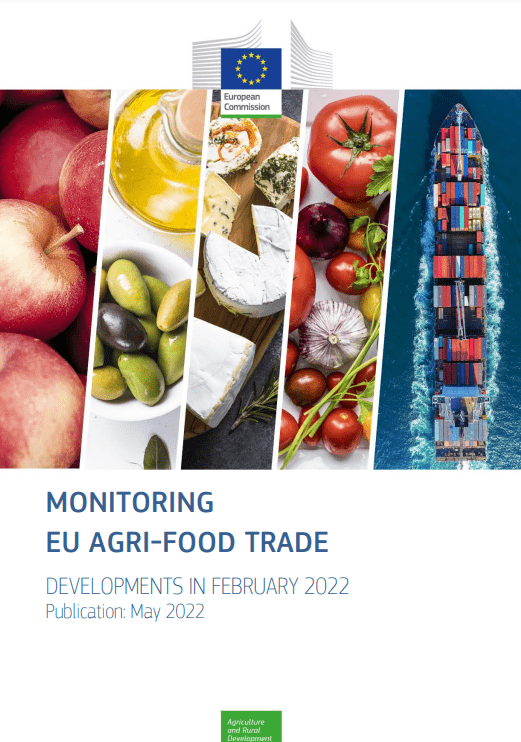
Monitoring EU Agri-Food Trade. Developments in February 2022
|
More information: European Commission – Press release

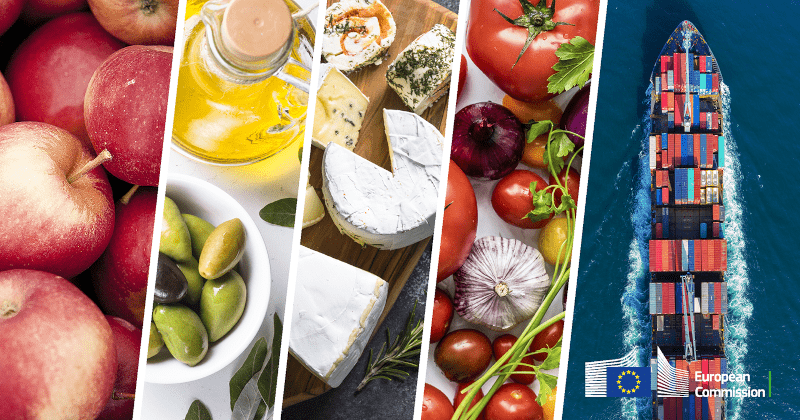
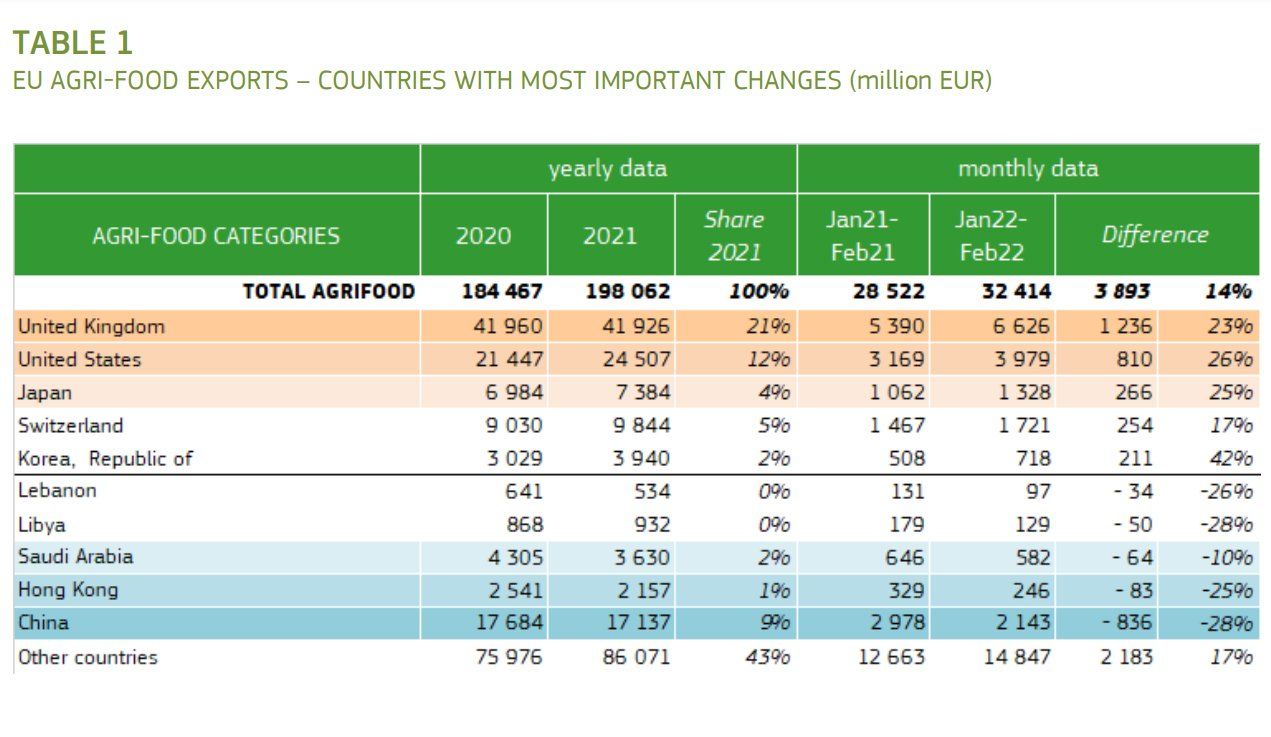

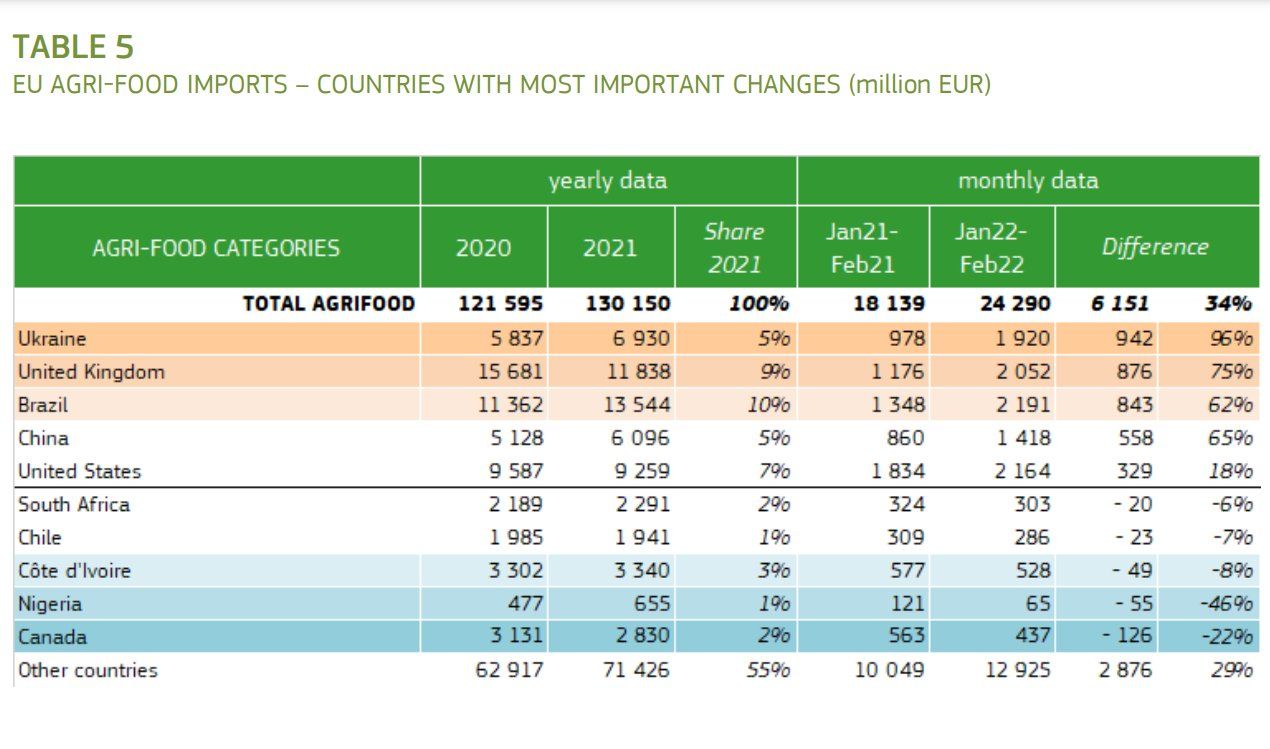
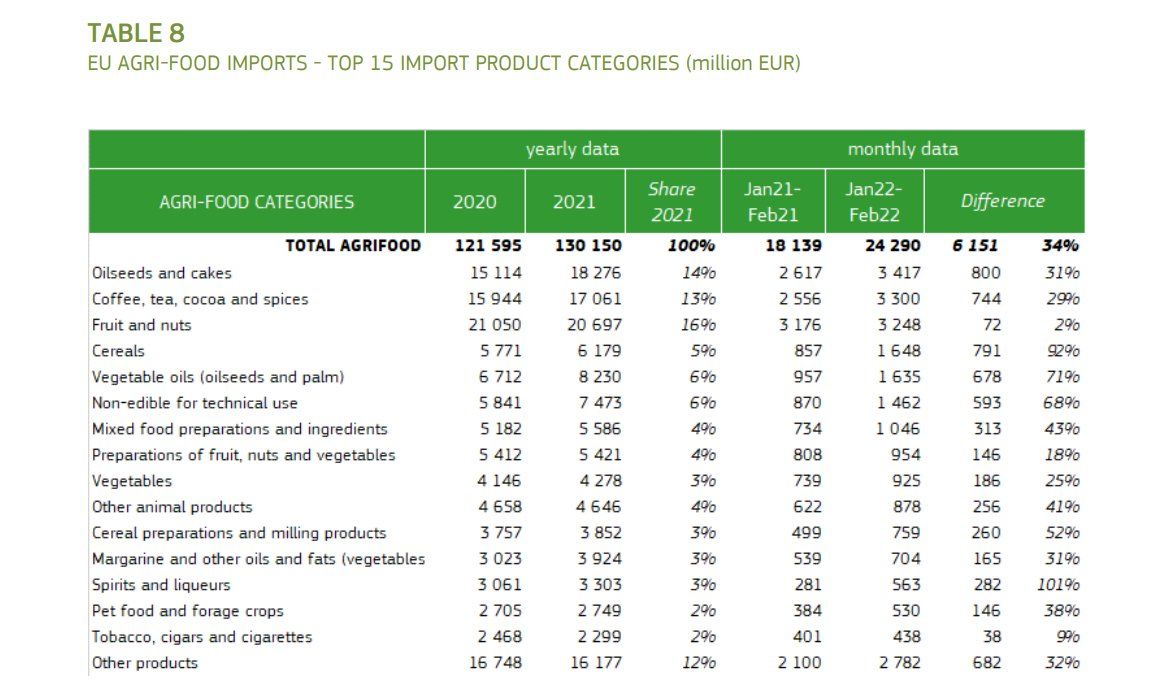

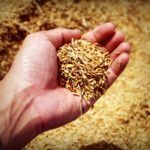
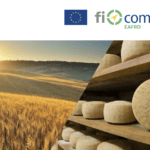


Leave a Reply